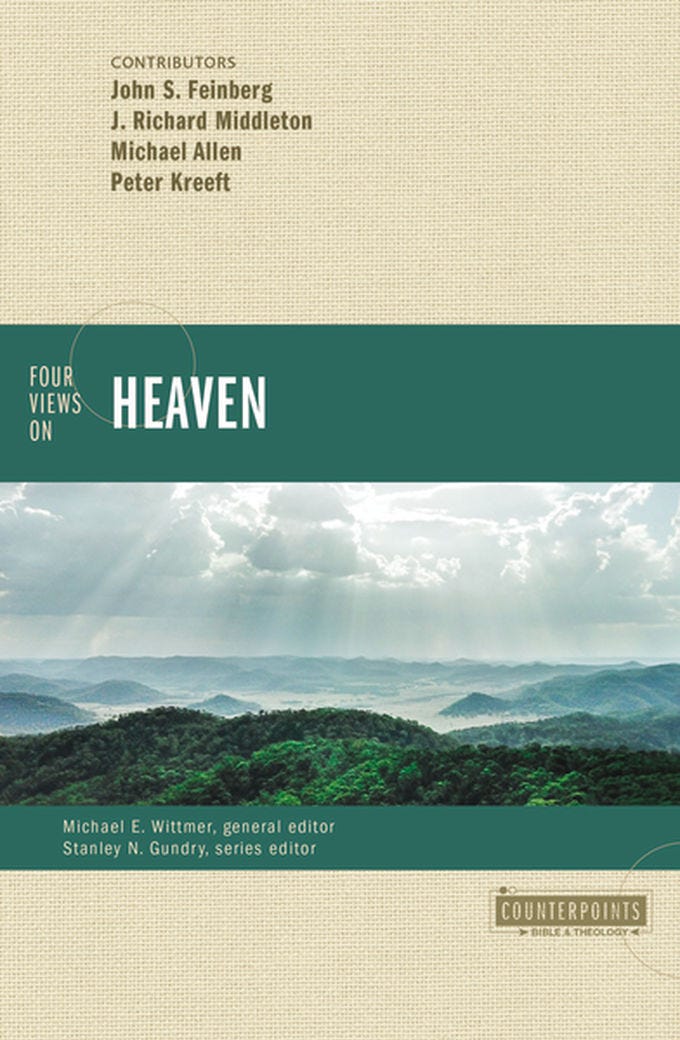What Is Molinism?
By Tyson James
“Middle knowledge is the most fruitful theological concept I’ve ever encountered.” — William Lane Craig
Answer 1: Molinism is an answer to the question, “How can it be true that God is sovereign over all things and that humans can be free and, therefore, morally responsible for their choices and actions?”
Christian thinkers who affirm both that God is sovereign over all of creation and that humans have freedom sufficient for moral responsibility draw support from various biblical passages. Here are a few passages affirming divine sovereignty:
● Mt 10:29-30: “Are not two sparrows sold for a penny? And not one of them will fall to the ground apart from your Father.”
● Rom 11:36: “For from him and through him and to him are all things.”
● Col 1:16: “For by him all things were created, in heaven and on earth, visible and invisible, whether thrones or dominions or rulers or authorities—all things were created through him and for him.”
And here are a few passages which imply human freedom:
● Gen 4:5-7: “If you do well, will you not be accepted? And if you do not do well, sin is crouching at the door. Its desire is contrary to you, but you must rule over it.”
● Deut 30:11-19: Moses puts the choice before Israel to either follow God and enter the promised land or walk away from God and lose possession of the land.
● Ezk 18:30-32: “Cast away from you all transgressions that you have committed, and make yourselves a new heart and a new spirit! Why will you die, O house of Israel? For I have no pleasure in the death of anyone, declares the Lord God; so turn, and live.”
● 1 Cor 10:13: “No temptation has overtaken you that is not common to man. God is faithful, and he will not let you be tempted beyond your ability, but with the temptation he will also provide a way of escape, that you may be able to endure it.”
However, the Bible doesn’t really spell out for us the relationship between these two affirmations. What we want to know is how these puzzle pieces can fit together. Many explanations have been proposed, but, according to some of the most acclaimed Christian thinkers today, the most promising one was formulated by a Jesuit monk named Luis de Molina in the late 1500s.[1]
Molina’s idea was rather simple: God knew prior to creation that he could create free creatures, that is, creatures who could make choices which would not simply be the necessary outcome of preceding factors. In addition to knowing he could create free creatures, God knew prior to his decision to create what those creatures would freely do in whatever circumstance he could place them. Molina called this middle knowledge because it is situated between God’s knowledge of what could be and what will be. With this knowledge, God could incorporate creatures’ free choices into his exhaustive planning of history, thus preserving complete divine sovereignty and the creaturely freedom necessary for moral responsibility.
Answer 2: Molinism powerfully explains a wide range of Christian doctrines.
Theologians have fruitfully employed Molina’s idea to explain a wide range of Christian doctrines, such as the following:
● The Problem of Evil: if God can create free creatures, then in order to create a world with as much good as this world contains (or will contain), he may also have to allow a certain amount of evil. With middle knowledge, God could know that a much greater good would come from allowing a creature to freely choose evil.
● Doctrine of the Inspiration of Scripture: with middle knowledge, God could know that were he to place the authors of Scripture in certain circumstances, they would freely write the words he wanted them to write. Therefore, both God and man can truly be said to be the authors of Scripture.
● Fate of the Unevangelized: with middle knowledge, God could ensure that those who are not evangelized are only those people whom he knew would never freely accept the Gospel even if they heard it.
● Perseverance of the Saved: with middle knowledge, God could ensure that those who freely accept the Gospel are only those people whom he knew would freely persevere in faith.
● Perseverance of the Condemned: with middle knowledge, God could ensure that those who are condemned for sin for eternity are only those people whom he knew would freely persevere in rejection of him forever.
● Warnings Against Apostasy: with middle knowledge, God could know that those who would freely fall away after believing would instead freely remain in belief if they were given warnings against apostasy.
It has also been applied to more modern topics:
● Evolution: with middle knowledge, God could know that if a particular biological situation were to come about, then a particular random genetic mutation would occur.
● Quantum mechanics: with middle knowledge, God could know that if an indeterministic quantum event were to occur, the quantum system would produce a particular definite state.
Answer 3: Molinism is a powerful tool for Christian apologetics.
C. S. Lewis said, “The heart cannot rejoice in what the mind rejects as false.” When attempting to demonstrate the truth of Christianity to unbelievers, one is often confronted by challenges to the coherence of various doctrinal claims—among them, the very issue Molina was addressing. By offering coherent, plausible, biblically consistent answers, the Christian apologist removes intellectual obstacles which may prevent an unbeliever from seeing Christianity as rational. Or, as my former professor Kevin Lewis would often say, “Apologetics fills the potholes in the road that leads to the door of the house of salvation.”[2] Why would someone put their trust in Christ if doing so would require the abandonment of rationality? Doesn’t Jesus himself claim to be “The Truth?” If accepting Christianity entails logically incoherent beliefs, then the unbeliever is well within his rational rights to reject Christian claims. And this is precisely why Molinism is such a powerful tool for apologetics. As noted above, the number of doctrines it plausibly explains is extensive, which means any logical coherence objections to Christian belief stemming from those areas may already be answered.
Objections
Like many Christian doctrines, Molinism is not explicitly taught in the Bible. Molina arrived at his idea very much the same way we arrive at the concept of the Trinity: by gathering the puzzle pieces across various Scriptural texts and seeking the best explanation for how those pieces fit together. Of course, any theological concept not explicitly taught in the Bible is subject to intense scrutiny (perhaps justifiably so), and Molinism has been no exception. Below are a couple of common objections:
“If God already knows what I’m going to choose, doesn’t that mean I have to choose it? That doesn’t sound like free will.”
This statement confuses certainty (a psychological state) with necessity (a property of propositions, or the way something exists or occurs). God knows and is certain about what we would or will choose, but our choices themselves are contingent. That is, they are not necessitated by prior factors. We don’t have to choose what we will choose, but God is certain about what choices we will (or would) choose.
“On Molinism, it seems like God’s knowledge is based on creatures, which means he’s depending on something other than himself for something he knows. Doesn’t that mean he’s not sovereign?”
This statement assumes that the way God knows our free choices is by looking at creatures and seeing what choices they would or will make. We call this a perceptual view of divine knowledge. But since God knows our choices even prior to our existing, there’s simply nothing for him to “look” at in order to discover this information. Instead, it’s better to think of God’s knowing these things as purely mental: God perfectly conceives in his mind the creatures he can create and what they would or will freely choose. We call this a conceptual view of divine knowledge.
Conclusion
Sometimes theology as a whole can seem more like an immovable mountain of doctrines than a field of study where real progress can be made. However, I think that Molinism does represent real progress in theology. By affirming divine middle knowledge, it’s possible to responsibly affirm that God is both completely sovereign over all things and that humans have genuine freedom and moral responsibility.
For more information on Molinism, check out the free articles at reasonablefaith.org.
Notes
[1] Though Dr. Kurt Jaros has recently claimed that Molina’s idea may be found in prototypical form as early as the 4th century AD.
[2] Dr. Lewis notes that he himself heard this from John Warwick Montgomery 35 years ago.
—Tyson James is the Global Chapters Director and Director of Translations/Transcriptions for Reasonable Faith. For more information on starting a Reasonable Faith chapter or to find an existing one in your area, visit https://www.reasonablefaith.org/chapters.
Image by PixxlTeufel from Pixabay
Four Views on Heaven
Discover and understand the different Christian views of what heaven will be like.
Christians from a variety of denominations and traditions are in the middle of an important conversation about the final destiny of the saved. Scholars such as N. T. Wright and J. Richard Middleton have pushed back against the traditional view of heaven, and now some Christians are pushing back against them for fear that talk about the earthiness of our final hope distracts our attention from Jesus.
In the familiar Counterpoints format, Four Views on Heaven brings together a well-rounded discussion and highlights similarities and differences of the current views on heaven. Each author presents their strongest biblical case for their position, followed by responses and a rejoinder that model a respectful tone.
Positions and contributors include:
Traditional Heaven — our destiny is to leave earth and live forever in heaven where we will rest, worship, and serve God. (John S. Feinberg)
Restored Earth — emphasizes that the saved will live forever with Jesus on this restored planet, enjoying ordinary human activities in our redeemed state. (J. Richard Middleton)
Heavenly Earth — a balanced view that seeks to highlight both the strengths and weaknesses of the heavenly and earthly views. (Michael Allen)
Roman Catholic Beatific Vision — stresses the intellectual component of salvation, though it encompasses the whole of human experience of joy, happiness coming from seeing God finally face-to-face. (Peter Kreeft)
Each volume of the Counterpoints series is a one-stop reference that allows readers to evaluate the different positions on a specific issue and form their own, educated opinion.
Find Four Views on Heaven at Amazon, Zondervan Academic, and other major booksellers.
* This is a sponsored post.
News
Can You Have Human Dignity without Christianity?
The Dark Factor of Personality
Whatever Happened to Human Rights?: Morality and C. S. Lewis’s Abolition of Man
9 Things You Should Know About Jehovah’s Witnesses
Tearing Us Apart: How Abortion Harms Everything and Solves Nothing
The Growth of Christianity in the World’s First Atheist Country
The 50 Countries Where It’s Hardest to Follow Jesus in 2022
Video: Why Music and Movies Point to God: A Conversation with Gavin Ortlund
Video: On Atheism, Can There Even Be Temporary Significance?
Video: Top Three Apologetics Mistakes
Video: Just for fun: 10 Magnificent Historical Libraries
(*The views expressed in the articles and media linked to do not necessarily represent the views of the editors of The Worldview Bulletin.)
Give Yourself—or a Friend—the Gift of Knowledge!
Would you like to grow in your knowledge of the Christian worldview and your ability to defend it? Subscribe to The Worldview Bulletin for only $2.50 per month and learn from world-class Christian scholars and apologists. You’ll receive our free weekly email as well as our subscriber-only monthly newsletter.
Or, to give a gift subscription that a friend or family member will benefit from the whole year, visit here.
Be equipped, informed, and encouraged!
“The Worldview Bulletin is a must-have resource for everyone who’s committed to spreading and defending the faith. It’s timely, always relevant, frequently eye-opening, and it never fails to encourage, inspire, and equip.”
— Lee Strobel, New York Times bestselling author of more than forty books and founding director of the Lee Strobel Center for Evangelism and Applied Apologetics
“I find The Worldview Bulletin very stimulating and would encourage all thinking Christians to read it.”
— John Lennox, emeritus professor of mathematics, University of Oxford, emeritus fellow in mathematics and philosophy of science, Green Templeton College, author of Cosmic Chemistry: Do God and Science Mix? (Lion Books).
Book Deals and Resources
Look here for Faithlife’s free eBook of the Month.
Visit here to get the Logos Free Book of the Month. You can download the free version of Logos which will allow you to access the monthly free books. Logos 9 is a great investment, though, and has tons of tools that make Bible study easier and richer. New users can get 50% off of the Logos 9 Fundamentals package, which discounts it to $49.99.
Get a second free book of the month here.
See the Logos Monthly Sale for dozens of good deals, as well as the New Year’s Sale, for resources up to 75% off.
The Faithlife free audiobook for January is The Heart of Christ in Heaven Towards Sinners on Earth by Thomas Goodwin.
The Christianaudio free download for January is The Necessity of Prayer by E. M. Bounds.
Audiobook: The Imitation of Christ by Thomas à Kempis, $1.99
Audiobook: Spurgeon on the Christian Life by Michael Reeves, $1.99
Audiobook: Praying with Paul: A Call to Spiritual Formation by D. A. Carson, $2.99
Stream the ESV Bible for free on ESV.org or the ESV Bible app on iOs and Android. Read by award-winning modern hymn writer Kristyn Getty. You can also audio stream the Bible in a few different translations using the new Bible Gateway Audio app.
Until Feb. 2nd, get Ontology and the Foundations of Mathematics in the Cambridge Elements in the Philosophy of Mathematics series free.
Ending anytime: IVP E-Book Sale and History & Apologetics E-Book Sale
Crossway Weekly E-Book Deals: Cultural & Social Issues
10 Dead Guys You Should Know: Standing on the Shoulders of Giants by Ian J. Maddock, $2.99
Out of the Silent Planet: (Space Trilogy, Book One) by C. S. Lewis, $1.99
Surprised by Laughter Revised and Updated: The Comic World of C. S. Lewis by Terry Lindvall, $3.99
Journey into God's Word, Second Edition: Your Guide to Understanding and Applying the Bible by J. Scott Duvall and J. Daniel Hays, $2.99
Dictionary of Christian Spirituality, $4.99
Just Do Something: A Liberating Approach to Finding God's Will by Kevin DeYoung, $3.19
Basic Christianity by John Stott, $2.99
Loving God with Your Mind: Essays in Honor of J. P. Moreland ed. by Paul Gould and Richard Brian Davis, $2.99





I believe it was Paul Helm who said something like, If one can show a no-risk view to God's meticulous sovereignty while maintaining molinism," then he'd buy into it. However, Helm would argue that this is not possible. I know Bill Craig has offered a rejoinder to Helm, but do not recall when or where.
Great explanation of Molinism! Very clear and succinct with some good examples of the pros and cons of this position.. That said, I just don't think this theory of trying to reconcile God's absolute sovereignty with fallen human's moral responsibility does justice to the whole scope of Scripture. I believe Biblical, covenantal Calvinism reckons more accurately with the nature of God, the free grace of salvation revealed in the Bible, and the finiteness of human freedom (by which I mean non-coerced choice in accordance with our radically depraved nature). Apart from this, it doesn't help that a Roman Catholic developed the theory (considering how the Gospel was utterly obscured by the Medieval church) and that today William Lane Craig, with his essentially heretical views on the historical Adam and Gen. 1-11, is an advocate of this view.